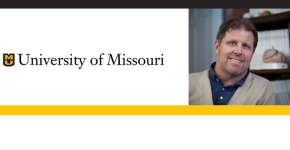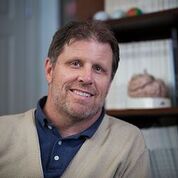Being more self-involved may also mean being more empathetic.
Brick Johnstone, professor of health psychology at the University of Missouri, discusses his research into empathy and self-awareness.
Johnstone recently returned from Oxford University, where he spent the summer studying the intersection of science and religion. Prior to his time at Oxford, Johnstone completed a nine-month fellowship at the Center of Theological Inquiry in Princeton, New Jersey, where he explored religious experience and moral identity. Johnstone recently served as a contributing expert for a Centers for Disease Control and Prevention report, “Traumatic Brain Injury in the United States: Epidemiology and Rehabilitation,” which was presented to Congress.
Empathy and Sense of Self
Empathy, or the ability to identify with others’ feelings, often is considered an important relational skill. My colleagues and I hypothesized that in order for individuals to be empathetic, they needed to be selfless. However, we found just the opposite: individuals who were more self-aware had higher levels of empathy.
My previous research found that the less individuals focus on themselves, the more able they are to connect with a higher power and have a spiritual experience. Our current research also found selflessness makes individuals more forgiving. We thought the same would be true for empathy, but that wasn’t the case.
For the study, we gave neuropsychological evaluations to 31 individuals with traumatic brain injury. The participants also answered questions about empathy. Twenty participants also received MRI scans of their brains.
The results showed that individuals who were more empathetic appeared to have increased functioning in their right parietal lobe, which is the area of the brain associated with self-orientation. Additionally, greater empathy was associated with increased volume of the insular cortex, which perceives information about the internal states of the body, or self.
One possible explanation, according to previous literature, is that individuals have to understand themselves before they can understand others’ situations and feel what others feel. If individuals don’t have a strong sense of self, it’s hard for them to know what the other person is going through or be able to feel what they are feeling.
Empathy is a more complex process than the study conclusions suggest, but the study provides a basis for future research on how self-orientation relates to empathy. Creating interventions that help individuals develop their sense of self may help them become more empathetic.



Comments
One response to “Brick Johnstone, University of Missouri – Empathy and Sense of Self”
I have worked with special needs and at risk children and adults for over 30 years in the State of Maine. I worked 10 years in a day treatment setting and left that job in Jan 2016.
I was diagnosed with layered depression and PTSD.
I have a BS in biology and a MA in Theology.
I have been working with an amazing counselor for over a year to help me heal my brain…the trauma I experienced in the work environment did not impact my ability to study scripture, teach adult Bible Study or give sermons periodically. My love for Creation and our Jersey cows, especially hand-milking, along with my husband of 23 years saved me from initially being hospitalized in January of 2016.
I can share much more with you if you are interested, especially about the children I worked with who were able turn their lives around because someone planted the seed in them about God….
My dream job at the facility where I was working was to become a Chaplain for the agency…I approached the program director about this and he put his hand up to me and said “no”…I didn’t even get a chance to share why I thought this is a needed position for the families and children we were working with in the day treatment center…I am also a supporter of 12 step programs…
You see I can go about this….The important thing that came to mind while I was reading your above comments was…..I believe many people can be empathetic with others and use this to remain victims (Me-Defining),,,empathy does not always translate into a person’s ability to be COMPASSIONATE and share AUTHENTIC HOPE….It’s God who is doing the healing in a relationship built on Compassion…Authentic Ministry is when God meets the needs of both the people in the relationship, healing both individuals because someone asked God to be present through silent prayer, vocal prayer or meditation….Once again I can go on….
Thank you so much for your time…I was wondering why the Depression and PTSD didn’t impair my spirituality and God led me to your paper about the brain and “Me-Definers” .
Thank you for being part of Healing Journey…I can’t wait to share all this with my clinician this week….Blessings….Christine Goodrich